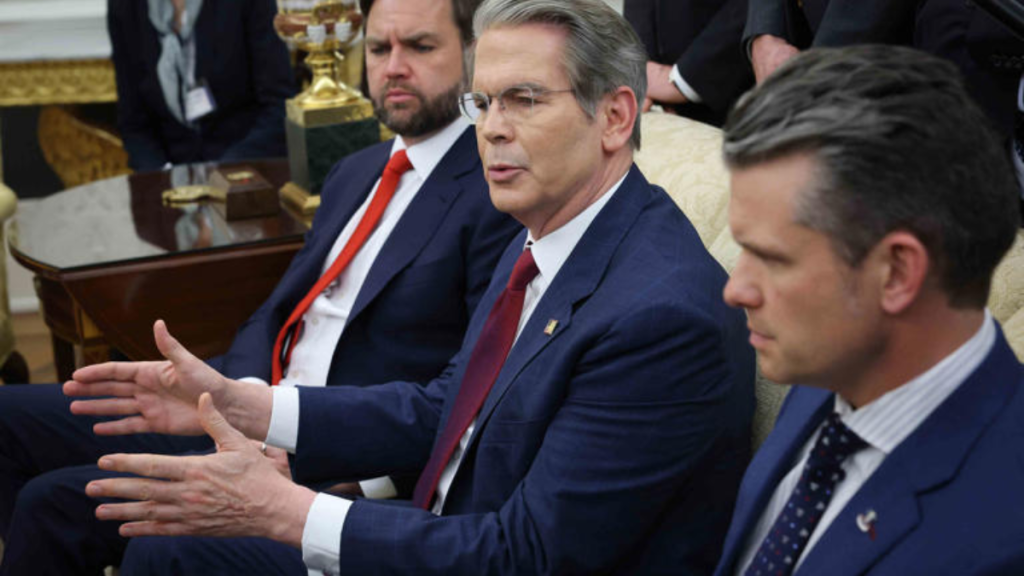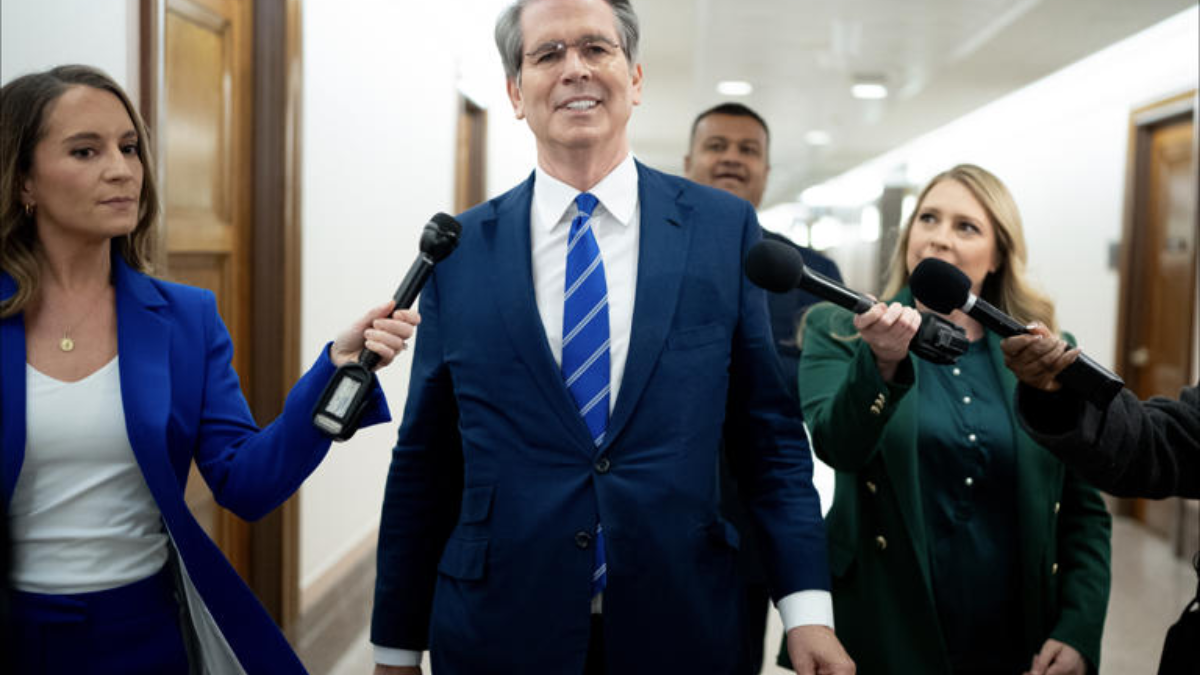The global financial landscape experienced a notable shift after U.S. Treasury Secretary Scott Bessent described the ongoing tariff standoff with China as “unsustainable.” Speaking at a closed-door investment summit in Washington D.C., Bessent confirmed that the Biden administration is preparing for a strategic de-escalation of tariffs imposed during the U.S.-China trade war.
His comments immediately sparked investor confidence and sent stock markets soaring.
Bessent emphasized the need for the United States to reconfigure its economic relationship with China, moving away from aggressive tariff strategies and focusing instead on bolstering domestic manufacturing and supply chain resilience.
He added that “inflationary pressures and the burden on American consumers and businesses” necessitate a new approach to trade policy.
This announcement arrives at a critical moment, as both nations have been struggling under the weight of punitive tariffs—some as high as 145% on key imports.
China has responded with retaliatory tariffs, creating disruptions across global supply chains and adding fuel to already high inflation in both economies.
Markets React Positively to De-escalation Hopes
The Treasury Secretary’s remarks triggered immediate gains on Wall Street and other major financial exchanges. The Dow Jones Industrial Average climbed by over 800 points (2.7%), while the S&P 500 rose by 2.5% and the Nasdaq Composite gained 2.7%.
Global markets also responded favorably, with Asia’s Nikkei and Hang Seng indexes posting strong gains of over 1.5%.
Investors interpret the possibility of a de-escalation as a welcome relief amid months of economic volatility and recessionary fears. Analysts from Morgan Stanley noted that easing trade tensions could lead to “reduced input costs, restored consumer confidence, and increased export volumes across sectors.”
A reduction in tariffs would also likely lower import prices, improving corporate profit margins and consumer spending capacity. If realized, these outcomes could rejuvenate global economic growth, which has slowed considerably in recent quarters due to protectionist trade policies and geopolitical uncertainty.
Trade Talks Are Not Guaranteed, Experts Warn
Despite the optimism surrounding Bessent’s announcement, trade policy experts caution that a final resolution may not come easily. Formal negotiations between the U.S. and China have not yet resumed in earnest, and both sides remain divided on key issues like intellectual property protections, market access, and industrial subsidies.
White House officials indicated that while discussions have been initiated behind the scenes, significant progress will require mutual concessions. “This is not just about lowering tariffs,” said Dr. Angela Moss, senior fellow at the Brookings Institution. “It’s about redesigning the entire architecture of U.S.-China trade relations.”
Adding to the complexity is the domestic political climate. Some members of Congress from both parties have expressed skepticism toward any rapid softening of trade positions, fearing it may be perceived as weak on economic nationalism.

What a De-escalation Could Mean for Consumers and Businesses
A successful resolution to the tariff standoff could bring substantial benefits to American households and businesses. Consumers would likely see lower prices on imported goods, including electronics, clothing, furniture, and automotive parts—all of which have seen price increases tied to tariff hikes.
Small and medium-sized enterprises (SMEs), particularly those reliant on Chinese components or exports, would also benefit from more predictable costs and supply chains. According to the U.S. Chamber of Commerce, over 60% of U.S. manufacturers have reported supply issues and cost increases linked to tariffs on Chinese goods.
Furthermore, a new trade framework could re-open opportunities for joint ventures, R&D partnerships, and greater access to the Chinese consumer market, which remains the world’s second-largest.
Global Economic Outlook: A Turning Point?
International observers, including the International Monetary Fund (IMF), view the potential thawing of trade tensions as a chance to reverse the negative trends seen in global GDP projections.
The IMF recently cut its 2025 global growth outlook to 2.8% from 3.3%, citing trade restrictions and inflationary trends.
A rollback of tariffs would likely ease inflationary pressures globally, benefiting emerging markets that are especially vulnerable to supply disruptions and cost volatility.
It would also send a positive signal to international trade organizations and trading blocs committed to open economic collaboration.
Conclusion
Secretary Bessent’s declaration that the U.S.-China trade dispute is “unsustainable” has injected fresh hope into both financial markets and the broader global economy.
While the path to a durable trade agreement remains complex and fraught with political hurdles, the prospect of renewed negotiations and reduced tariffs has already produced tangible benefits.
Markets have rallied, business confidence is on the rise, and the world is watching closely. If diplomatic efforts continue on a constructive path, this could mark the beginning of a new era in U.S.-China economic relations.
For more details on global market reactions to the news, visit Reuters.
Disclaimer – Our team has carefully fact-checked this article to make sure it’s accurate and free from any misinformation. We’re dedicated to keeping our content honest and reliable for our readers.
